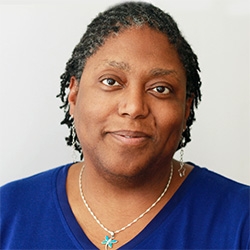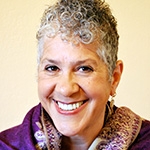
NVC Resources on Exercises and Practices
-
Why is it so difficult to change our patterns even when we want to, even when we experience shame or despair about them? Arnina Kashtan offers some of the common pitfalls and concrete steps to overcome them in the future.
-
In this brief video, CNVC Certified Trainer and Inner Relationship Focusing Guide and teacher, Gina Cenciose, teaches that our inner relationship is the basis for both Focusing and NVC work.
-
Without self-acceptance any attempt at growth and transformation, even while parenting, can easily become a path to self-judgments and another yardstick against which to measure ourselves as falling short. Instead, we can practice 1 minute a day or more, or while doing other tasks, to develop the self-compassion and self-acceptance needed to grow both new habits and our capacity to meet our children with calm and compassion.
-
Here's guidance on how to approach your inner experience when triggered or stuck in a distressing life experience. Self-Compassion in life can be experienced as: "There is room for life experience in me. There is an open space for ‘what is’ to be fully present in my inner experience". This exercise is more about tracing your felt experience than verbalizing it.
-
Instead of doing an "apology" using the NVC framework, you can do a "do over" to express regret. This roleplay exercise shows you how. You'll be talking about your needs that were not met by what you did, expressing what you wanted to say instead of what you said, and more.
-
We can shift from being absorbed and identified with our inner chatter and feelings to being the space of awareness of these things. Observe your breath. Then observe your mind generating thoughts. Next, feel sensations of your body, particularly the difficult ones. Now, connect with the underlying energy of needs. Ask your unconscious mind for universal needs words related to what you now notice, think and feel.
-
As a beginner in NVC, you might find your attempts to practice your NVC only increases conflict, disconnection and upset in your interactions with people. Or perhaps people start seeing you as inauthentic. From there, you may find yourself sinking deeper into self-judgement. In this article, Jim Manske shows us how to shift these potential unintended outcomes, into deeper NVC consciousness that brings in more warmth, presence and open-hearted connection.
-
Certified CNVC trainer Roxy Manning, Phd, answers a question: how do we use the term "harm" in NVC? Think of the word "harm" as an unmet need, practice observation to identify the need or needs that are not met.
-
It is time to create true transparency, empathy and trust in your intimate relationships! In this inspiring telecourse recording, Kelly Bryson combines humor, music, group readings and experiential exercises to help you realize the fulfilling and intimate relationships you long for.
-
Working on social justice and racial equity? If you include attending to white culture and privilege as part of that work, you'll reap important benefits. Understanding white culture — along with its embedded historical privileges — provides valuable insight into a larger system of inequity.











